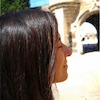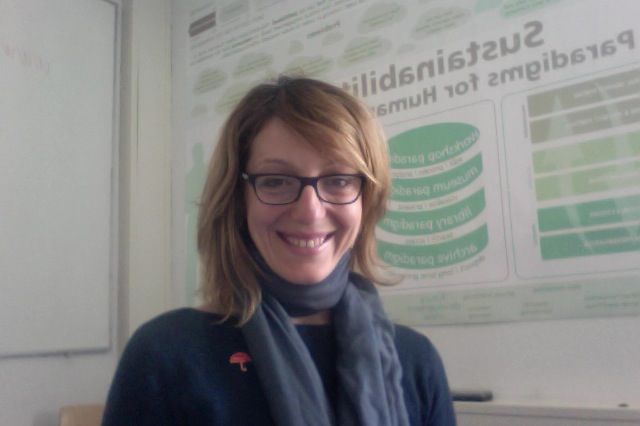Studying at the University of Verona
Here you can find information on the organisational aspects of the Programme, lecture timetables, learning activities and useful contact details for your time at the University, from enrolment to graduation.
Academic calendar
The academic calendar shows the deadlines and scheduled events that are relevant to students, teaching and technical-administrative staff of the University. Public holidays and University closures are also indicated. The academic year normally begins on 1 October each year and ends on 30 September of the following year.
Course calendar
The Academic Calendar sets out the degree programme lecture and exam timetables, as well as the relevant university closure dates..
| Period | From | To |
|---|---|---|
| I semestre | Oct 1, 2018 | Jan 12, 2019 |
| II semestre | Feb 18, 2019 | Jun 1, 2019 |
| Session | From | To |
|---|---|---|
| ESAMI LINGUE- sessione invernale | Jan 14, 2019 | Feb 16, 2019 |
| ESAMI LINGUE- sessione estiva | Jun 3, 2019 | Jul 27, 2019 |
| ESAMI LINGUE- sessione autunnale | Aug 26, 2019 | Sep 21, 2019 |
| Session | From | To |
|---|---|---|
| LAUREE LINGUE - sessione autunnale (a.a. 2017/18) | Nov 12, 2018 | Nov 17, 2018 |
| LAUREE LINGUE - sessione straordinaria (a.a. 2017/18) | Apr 1, 2019 | Apr 6, 2019 |
| LAUREE LINGUE - sessione estiva (a.a. 2018/19) | Jul 8, 2019 | Jul 13, 2019 |
| LAUREE LINGUE - sessione autunnale (a.a. 2018/19) | Nov 4, 2019 | Nov 9, 2019 |
| LAUREE LINGUE - sessione straordinaria (a.a. 2018/19) | Mar 30, 2020 | Apr 4, 2020 |
| Period | From | To |
|---|---|---|
| Festa di Ognissanti | Nov 1, 2018 | Nov 1, 2018 |
| Sospensione dell'attività didattica | Nov 2, 2018 | Nov 3, 2018 |
| Festa dell’Immacolata | Dec 8, 2018 | Dec 8, 2018 |
| VACANZE DI NATALE | Dec 22, 2018 | Jan 6, 2019 |
| VACANZE DI PASQUA | Apr 19, 2019 | Apr 23, 2019 |
| Sospensione dell'attività didattica | Apr 24, 2019 | Apr 24, 2019 |
| Festa della liberazione | Apr 25, 2019 | Apr 25, 2019 |
| Festa del lavoro | May 1, 2019 | May 1, 2019 |
| Sospensione dell'attività didattica | May 20, 2019 | May 20, 2019 |
| Festa del Santo Patrono | May 21, 2019 | May 21, 2019 |
| Festa della Repubblica | Jun 2, 2019 | Jun 2, 2019 |
| VACANZE ESTIVE | Aug 13, 2019 | Aug 18, 2019 |
Exam calendar
Exam dates and rounds are managed by the relevant Foreign Languages and Literatures Teaching and Student Services Unit.
To view all the exam sessions available, please use the Exam dashboard on ESSE3.
If you forgot your login details or have problems logging in, please contact the relevant IT HelpDesk, or check the login details recovery web page.
Should you have any doubts or questions, please check the Enrollment FAQs
Academic staff
 alessandro.bigardi@univr.it
alessandro.bigardi@univr.it

Bradas Marija
 marija.bradas@univr.it
marija.bradas@univr.it
 paolamaria.caleffi@univr.it
paolamaria.caleffi@univr.it
 veronica.gobbato@univr.it
veronica.gobbato@univr.it
 tiziana.mancinelli@univr.it
tiziana.mancinelli@univr.it
 silvia.zollo@univr.it
silvia.zollo@univr.it
Study Plan
The Study Plan includes all modules, teaching and learning activities that each student will need to undertake during their time at the University.
Please select your Study Plan based on your enrollment year.
1° Year
| Modules | Credits | TAF | SSD |
|---|
1st foreign language2nd foreign literature1st foreign literature2nd foreign literature2° Year activated in the A.Y. 2019/2020
| Modules | Credits | TAF | SSD |
|---|
1st foreign language2nd foreign language1st foreign literature2nd foreign literature1 module to be chosen among the following3° Year activated in the A.Y. 2020/2021
| Modules | Credits | TAF | SSD |
|---|
1st foreign language2nd foreign languagePhilology of the 1st or 2nd language| Modules | Credits | TAF | SSD |
|---|
1st foreign language2nd foreign literature1st foreign literature2nd foreign literature| Modules | Credits | TAF | SSD |
|---|
1st foreign language2nd foreign language1st foreign literature2nd foreign literature1 module to be chosen among the following| Modules | Credits | TAF | SSD |
|---|
1st foreign language2nd foreign languagePhilology of the 1st or 2nd language| Modules | Credits | TAF | SSD |
|---|
Legend | Type of training activity (TTA)
TAF (Type of Educational Activity) All courses and activities are classified into different types of educational activities, indicated by a letter.
Spanish literature 2 (2019/2020)
Teaching code
4S002929
Teacher
Coordinator
Credits
9
Language
Spanish
Scientific Disciplinary Sector (SSD)
L-LIN/05 - SPANISH LITERATURE
Period
I semestre (Lingue e letterature straniere) dal Sep 30, 2019 al Jan 11, 2020.
Learning outcomes
The course aims to provide a good knowledge of Spanish literature from its origins to the seventeenth century (historical context, texts, genres, movements and authors). At the end of the course the student will have to demonstrate to understand complex texts and implicit meanings and will have to express himself in Spanish fluently and spontaneously; he/shemust be able to contextualize literary phenomena, to argue about the teaching contents in written and oral form in Italian and in Spanish.
Program
TITLE OF THE COURSE: The literary culture of the Siglo de Oro
The course is an introduction to the Spanish culture and literature of the Renaissance and the Baroque period. In particular, the following authors and literary currents will be presented:
1 Pre-Renaissance: the historical and social context of the fifteenth century, the Catholic Kings, the lyric of the Castilian tradition, the romancero, the novel, Celestina.
2 Renaissance: the empire of Charles V, erasmism, Philip II and the Counter-Reformation, Italianist poetry and Garcilaso de la Vega, mysticism and Juan de la Cruz, the novel, the picaresque and the Lazarillo de Tormes.
3 Baroque: the kingdoms of Philip III and Philip IV; the theater: Lope de Vega, Tirso de Molina, Calderon de la Barca; the poem: Góngora and Quevedo.
The general context of literary history will be illustrated by the reading and commentary of three fundamental classics: the Lazarillo de Tormes, the Don Quijote by Miguel de Cervantes, the comedy La dama boba by Lope de Vega. Finally, the theme of the current shift to digital culture will be introduced in Spanish.
The exam is subject to passing (propedeuticità) of Spanish Language 1 and Spanish Literature 1. The teaching is given in Spanish and the classics will be read and partially commented in the classroom.
MANDATORY TEXTS
- MANUAL: F. Pedraza Jiménez, M. Rodríguez Cáceres, Las épocas de la literatura española, Ariel, 2012 (cap. 2, 3, 4)
-HISTORY: J.P. Fusi, Historia mínima de España, Madrid, Turner, 2012 (fino a p. 139)
- ANTHOLOGY: si vedano pagine in e-learning
- CLASSICS:
- Lazarillo de Tormes, ed. Francisco Rico, Venezia, Marsilio (integrale)
- F. Lope de Vega, La dama sciocca, Venezia, Marsilio (integrale)
- M. de Cervantes, Don Quijote de la Mancha, ed. Francisco Rico, Madrid, Alfaguara, 2016 (cap. indicati in e learning)
- D. Pennac, Come un romanzo, Feltrinelli (per introdurre il Don Quijote)
DIGITAL HUMANITIES
- J. M. Lucía Megías, Elogio del texto digital: claves para interpretar el nuevo paradigma Madrid 2012.
RECOMMENDED TEXTS ON DON CHISCIOTTE
- (optional): Anthony Close, Guía esencial del Quijote, Madrid, Visor, 2019
- Electronic edition with useful comments and notes: Miguel de Cervantes, El ingenioso Hidalgo Don Quijote de la Mancha, ed. F. Rico. Madrid: Cervantes Virtual Center, 1997. http://cvc.cervantes.es/literatura/clasicos/quijote
-Italian translation: Cervantes, Don Quixote of the Mancha, introduction. de Alessandra Riccio, care and trad. by Barbara Troiano and Giorgio di Dio, Rome Newton Compton, € 3.90.
| Author | Title | Publishing house | Year | ISBN | Notes |
|---|---|---|---|---|---|
| Manuel Camarero et al. | Antología comentada de la literatura española. Historia y textos. Siglo XVI | Castalia | 2006 | Pagine in e-learning | |
| PENNAC, Daniel | Come un romanzo | Feltrinelli | 2011 | come introduzione al Don Chisciotte | |
| M. de CERVANTES | Don Quijote de la Mancha, ed. Francisco Rico | Alfaguara | 2016 | obbligatoria questa edizione; si indicheranno i capitoli | |
| José Manuel Lucía Megías | Elogio del texto digital. Claves para interpretar el nuevo paradigma | Madrid, Fórcola | 2012 | ||
| Anthony Close | Guia esencial del Quijote | Visor | 2019 | facoltativo | |
| Fusi, Juan Pablo | Historia mínima de España | Madrid: Turner | 2012 | fino a p. 139 | |
| Lope de Vega | La dama sciocca | Marsilio | testo a fronte | ||
| Pedraza Jiménez, Felipe B., Rodríguez Cáceres, Milagros | Las épocas de la literatura española, | Madrid, Ariel | 2012 | capitoli 2, 3 e 4 | |
| Anonimo | Lazarillo de Tormes | Marsilio | 2017 | 978-88-317-2676-4 | testo a fronte |
Examination Methods
During the course, ATTENDING students will have access to an intermediate written test on the first part of the course (history, literature history, anthology) that will contribute to the final evaluation.
The final exam on the second part of the program (reading of the 3 classics and of the book on digital culture) consists of an oral exam in Spanish which includes a verification of the level of comprehension of the texts (reading, translation and commentary).
Both the partial test and the final oral exam will be intended to verify:
- the depth and breadth of the knowledge acquired
- the ability to understand the literary texts in the program
- the ability to connect to the historical-cultural context
- the ability to express oneself and to argue in Spanish
Students NOT ATTENDING, in addition to the program and the bibliography indicated, must study Anthony Close, Guía esencial del Quijote, Madrid, Visor, 2019.
For non-attending students and attending students who have not taken (or have not passed) the partial exam, the final oral exam is scheduled for the entire course program.
Please note that 1 credit is equivalent to 25 hours of study; for this reason, in a course of 9 credits, in addition to attending the lessons (54 hours), students are expected to spend at least another 150 hours in schoolwork.
The teacher is available during the reception for clarifications on the course contents.
Type D and Type F activities
To discover all the teaching activities accredited by the foreign teaching college click here
Career prospects
Module/Programme news
News for students
There you will find information, resources and services useful during your time at the University (Student’s exam record, your study plan on ESSE3, Distance Learning courses, university email account, office forms, administrative procedures, etc.). You can log into MyUnivr with your GIA login details: only in this way will you be able to receive notification of all the notices from your teachers and your secretariat via email and also via the Univr app.
Student login and resources
Assegnazione tutore
Attività accreditate D/F
Calendario didattico dettagliato
Cambio lingua curriculare
Competenze informatiche
Competenze linguistiche (prima e seconda lingua)
Competenze linguistiche in triennale (terza lingua CFU F)
Compilazione del piano didattico
Corso di Lingua portoghese
Erasmus+ e altre esperienze all'estero
Linguistic training CLA
Graduation
Stage e tirocini
Nel piano didattico della laurea triennale in Lingue e culture per l’editoria (L11 ED) è previsto un tirocinio/stage obbligatorio (CFU 6).
Le attività di stage sono finalizzate a far acquisire allo studente una conoscenza diretta in settori di particolare interesse per l’inserimento nel mondo del lavoro e per l’acquisizione di abilità professionali specifiche.
Le attività di stage sono svolte sotto la diretta responsabilità di un singolo docente presso studi professionali, enti della pubblica amministrazione, aziende accreditate dall’Ateneo veronese.
I crediti maturati in seguito ad attività di stage saranno attribuiti secondo quanto disposto nel dettaglio dal “Regolamento d’Ateneo per il riconoscimento dei crediti maturati negli stage universitari” vigente.
- Tutte le informazioni in merito agli stage per futuri studenti sono disponibili alla pagina Stage e tirocini.
- Tutte le informazioni in merito agli stage per studenti iscritti sono pubblicate in MyUnivr - come fare per - stage e tirocini.
- Tutte le informazioni in merito agli stage per le aziende sono disponili alla pagina Stage e tirocini per azienze.
Ulteriori informazioni al seguente link https://www.univr.it/it/i-nostri-servizi/gestione-carriere-studenti-lingue-e-letterature-straniere/stage-e-tirocini-lingue-e-letterature-straniere

 +39 045802 8409
+39 045802 8409






























